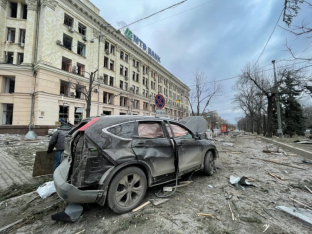I am Mariya Borevich, your personal lawyer. My primary goal is to help clients find optimal solutions to current legal issues, ensuring reliable protection of their interests. I specialize in family, civil, and military law, which allows me to effectively handle a variety of situations and cases. In family law, I provide support in resolving issues related to divorce, property division, establishing and challenging parental rights, alimony, and child custody. I understand that these matters are often emotionally complex, so I always strive to find the most delicate and fair solutions for all parties involved. In civil law, I assist in settling disputes related to contracts, property rights, compensation for damages, inheritance, and other issues concerning the protection of personal and property interests. Special attention is given to military law — supporting servicemen, protecting their rights and interests related to military service, social guarantees, and legal disputes. This area requires deep knowledge and understanding of the specifics of military service and the legislation regulating it.
Military conflicts undoubtedly have a serious impact on civilian property, resulting in damage to buildings, infrastructure and other property. In such cases, securing compensation for damages becomes a critical task. Let's take a look at the main aspects of the compensation for damage to property during the war.
Rights of citizens in case of property damage during war:
Right to compensation: Under international humanitarian law and the domestic laws of many countries, citizens have the right to compensation for damage to their property as a result of military conflict.
Principle of non-discrimination: Governments are obliged to provide compensation for property damage without any form of discrimination, regardless of the status or origin of the owners.
The procedure for compensation for damages caused by the war:
Documenting the damage: Damaged property must be documented in detail, with photographs, a description of the damage and other relevant evidence.
Filing a claim: Property owners must file a claim for compensation with the relevant government authorities or insurance companies.
Assessment of damages: Experts assess the damages and determine the amount of compensation in accordance with established procedures and standards.
Prospects:
Involvement of international funds: In case of large-scale destruction, international organizations and funds can provide compensation assistance.
Infrastructure Development: The reparations process can contribute to the rebuilding of local infrastructure and post-war economic recovery.
Full or partial compensation for damages by the country guilty of the war is a complex and sensitive issue that often raises a large number of legal, moral and political issues. Here are some key aspects of this question:
International norms and treaties: There are international norms governing the issue of compensation for wartime damages, including the Geneva Conventions and the UN Charter.
The principle of responsibility for damages: According to international humanitarian law, aggressor countries and countries that violate international peace are responsible for damages caused to the civilian population and their property.
Political and diplomatic aspects: The reparations process is often accompanied by complex political negotiations and diplomatic efforts.
Financial Constraints: Governments defeated by military conflict may have limited financial capacity to compensate for all the damage caused.
Moral Aspect: Reparations can be perceived as an acknowledgment of the suffering and damage caused to the civilian population, as well as the moral responsibility of the aggressor country.
Legal Processes: Processes for compensation may include legal actions, the conclusion of international agreements or the creation of special compensation funds.
War reparations, compensation for war damages reparations for war damages are an important mechanism for restoring local economies and social stability after a military conflict. Guaranteeing citizens' rights to compensation and an effective compensation process play a key role in this process.

































